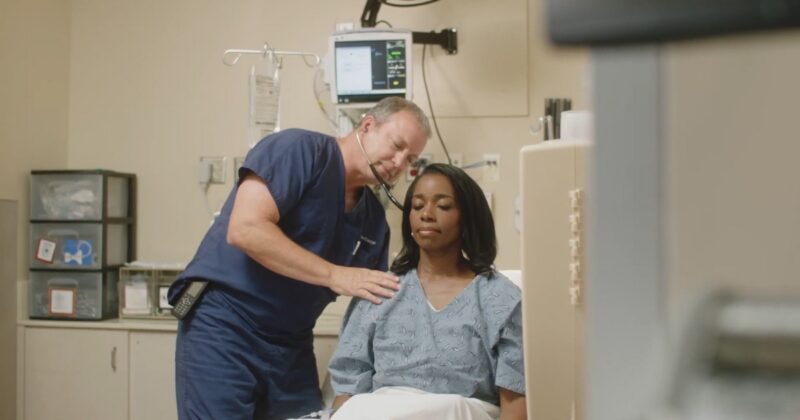Have you ever booked an appointment with an endocrinologist, and how to know if you need to? Endocrinologists are medical specialists dedicated to diagnosing and treating hormonal disorders across various bodily systems for different age groups, genders, as well as health concerns.
While their expertise is within loads of hormonal issues, a significant focus of their practice involves the intricate management of reproductive hormones. Here is all you should know.
What are the Responsibilities of a Reproductive Endocrinologist?
Did you know that infertility is a prevalent issue, affecting numerous individuals, with statistics indicating that up to 15% of couples encounter challenges conceiving? Interestingly and surprisingly, infertility is equally prevalent among both men and women.
The point of a reproductive endocrinologist is to employ various approaches, including surgery, medication, and procedural interventions, to address infertility in the shortest and safest time possible. However, before devising a treatment strategy, they must first identify the root cause of the problem, by doing loads of tests.
What Type Of Tests Do You Have To Do To Figure Out Your Reproductive State?

Most endocrinologists will advise you to take:
- Conducting tests to assess blood sugar and thyroid function for abnormalities.
- Semen tests for male fertility treatments.
- Ordering X-rays of the uterus and fallopian tubes to identify potential structural issues that may impede conception.
- Ovarian reserve fertility, such as the follicle-stimulating hormone, estradiol, and anti-Müllerian hormone.
By analyzing these factors, reproductive endocrinologists can formulate targeted treatment plans that are specifically tailored to your needs, age group, and your specific case, as no case is identical.
How Endocrinologist Can Help Your Case: Top 7 Crucial Facts To Know And Follow

-
Address infertility
A primary area of concern for endocrinologists is diagnosing and treating infertility. By identifying hormonal imbalances that may hinder conception, these specialists develop tailored treatment plans. These plans often incorporate hormone therapy, lifestyle adjustments, or advanced reproductive technologies like in vitro fertilization, also known as IVF.
-
Menstrual irregularities
Is your period regular, and how often are you on it? Endocrinologists play a pivotal role in managing menstrual disorders such as irregular cycles, amenorrhea, and menorrhagia.
Thanks to some hormone testing and other diagnostic methods, they pinpoint hormonal imbalances underlying these conditions. If you have an irregular flow, there will be hormone replacement therapy or medications to regulate menstrual cycles effectively.
-
Navigate menopausal hormonal changes
As women transition through menopause, hormonal fluctuations can lead to uncomfortable symptoms. Endocrinologists offer expertise in managing these changes and provide hormone replacement therapy to alleviate symptoms like hot flashes, mood swings, and vaginal dryness. Your age will play a crucial role in this case as well.
-
PCOS
PCOS is a prevalent hormonal disorder among reproductive-aged women. Characterized by irregular periods, excessive hair growth, and ovarian cysts, it requires comprehensive management and proper care.
Endocrinologists diagnose PCOS using hormone testing and ultrasound imaging, then craft treatment plans tailored to individual needs. These plans often involve lifestyle modifications or even fertility treatments for those seeking conception.
-
Thyroid issues
Thyroid dysfunction, whether characterized by overproduction or underproduction of hormones, can lead to a range of health complications for your overall body, and most definitely your reproductive system.
Excessive or inadequate thyroid hormone secretion can result in osteoporosis, kidney stones, chronic fatigue, and cognitive difficulties. Symptoms may include bone and joint pain, fractures, weight fluctuations, depression, as well as infertility issues.
-
Hirsutism
Hirsutism is a state of excessive growth of hair in areas typically associated with male pattern hair growth. It poses cosmetic and emotional challenges for affected individuals.
This condition, often visible on the face, chest, and back, is commonly linked to hormonal imbalances such as excess male hormones or reduced estrogen levels. Fortunately, with the expertise of an endocrinologist, hirsutism can be effectively managed, although it is not as crucial to your reproductive system.
-
Male reproductive hormones
Endocrinologists also address hormonal issues affecting male reproductive health. Conditions like hypogonadism, marked by low testosterone levels, can impact fertility, sexual function, and overall well-being.
Treatment options, including hormone replacement therapy or medications stimulating testosterone production, are prescribed to restore hormonal balance in men. Every treatment is different and is fully customizable to every individual, depending on their needs.
When To Book An Appointment?

Not too sure if you’re the right candidate? Here are some circumstances in which you should book an appointment:
- Difficulty with sexual function
- You have pain, swelling, or lumps in your testicles
- Unusual breast growth in males
- You have a low sperm count
With the right approach, you will be offered helpful insights into fertility journeys and provided with medical interventions when necessary. The right specialist will act as an expert in navigating the complexities of fertility issues and guiding individuals toward achieving their family planning goals.
Distinguishing Reproductive Endocrinologists from OB-GYNs
Not too sure which one to pay a visit to, or what’s the main difference? While OB/GYNs and reproductive endocrinologists (REs) share some similarities, they differ in their areas of expertise.
OB/GYNs focus on female reproductive health, including menstruation, pregnancy, childbirth, and related surgeries. In contrast, REs specialize in infertility and endocrine system disorders affecting fertility in all genders and sexes.
REs undergo additional fellowship training after completing their OB/GYN residency to specialize in addressing infertility. When patients face infertility challenges, they are often referred to REs for specialized evaluation and treatment.
Want To Get Informed?

If you’re intrigued by this topic and want to learn more in general, check out mascmedical.com. They have a lot of articles and helpful insights that will intrigue you while being a trustworthy recruiting company.
Based on a 2018 report by Leaders for Today, over half of healthcare organizations (51.6%) rated their ability to locate suitable talent within a reasonable timeframe as “not very good.”
Undertaking a successful recruitment effort in the healthcare sector can prove to be a daunting and time-consuming endeavor, which is why they can help you navigate your way and deal with your struggles.
